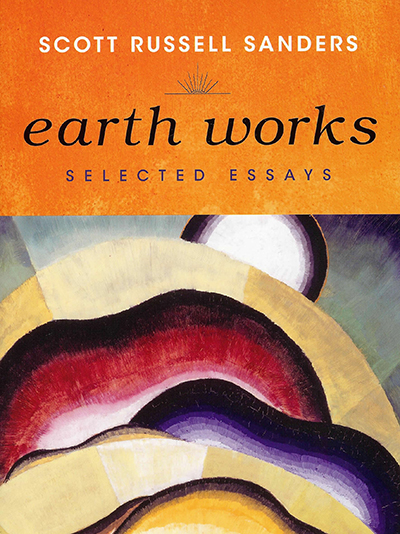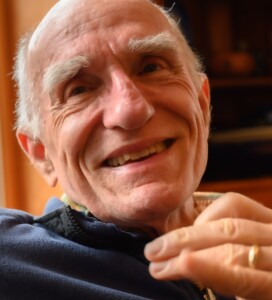 In 2008, and while in graduate school, I came across an essay—which I would later teach from—by the writer Scott Russell Sanders called “The Inheritance of Tools.” The essay, which examines the intricate ways in which our muscles and our memories are just as much tools as, well, tools, also delicately threads the writer’s relationship with his recently deceased father, revealing how any task involving a tool summons the father. The reflective aspects of the essay, which tug at the surface like a bobber on the end of a fishing line, are complemented by how well the narrative components lock emotion and inquiry into the present. It is this natural flow and sway between positioning a narrative and creating space for the reader to see the meaning in reflection that is quintessentially Sanders, and which thus always leads a reader into comfortable—and also challenging—wonderment.
In 2008, and while in graduate school, I came across an essay—which I would later teach from—by the writer Scott Russell Sanders called “The Inheritance of Tools.” The essay, which examines the intricate ways in which our muscles and our memories are just as much tools as, well, tools, also delicately threads the writer’s relationship with his recently deceased father, revealing how any task involving a tool summons the father. The reflective aspects of the essay, which tug at the surface like a bobber on the end of a fishing line, are complemented by how well the narrative components lock emotion and inquiry into the present. It is this natural flow and sway between positioning a narrative and creating space for the reader to see the meaning in reflection that is quintessentially Sanders, and which thus always leads a reader into comfortable—and also challenging—wonderment.
Thankfully, there is no shortage for access to this wonderment: Scott Russell Sanders is the author of more than twenty books of fiction and nonfiction, his most recent being the collection of essays, The Way of Imagination, published in August of this year by Counterpoint Press. In this collection Sanders continues the thoughtful and perceptive probe into the destruction of the environment he’s always exercised, but this time around he includes more nuanced questioning of things like wealth, growth, and what it means to exercise compassion and actually change with our imaginations. The essays are lucid, impactful, each of them a jumpstart to the engaging kinds of conversation that draw up real change for our hopes and our environment. In this they operate with the knowledge that their topics must be reexamined, must be taken up anew in order to remind us of our role in budging thought into action.
Sanders and I connected via Zoom on two separate occasions in November, and followed up with questions through email. Prior to our meetings, I had the chance to read numerous nonfiction books written by him (Hunting for Hope, Earth Works: Selected Essays, and A Conservationist’s Manifesto), as well as a handful of essays and short stories that I tracked down via interlibrary-loan and JSTOR. But it was his 1993 book, Staying Put: Making a Home in a Restless World, that first revived my interest in his work. I retrieved it from my basement library at the beginning of the Covid-19 pandemic in March, and it became the first book that allowed me to continue reading during this collectively fraught year. It taught me to be present, to feed and extend the often seemingly spare appearances of consciousness. There is something consistently gracious going on in this writing—the tone is considerate, illuminating—and the focus on Earth at once feels expansive and inclusive, as opposed to pedantic and selective (which a lot of writing in and around nature risks becoming). This is to say that Sanders simply cares, and yet his care, his writing, is never simply a sampling; as both a professor and a writer he has, for many decades, continued to think and write in—to nod toward Emerson—a searchingly manner. This is also to say that in his writing you will find companionship and challenge, in that as much as the prose is luminous, the searches that abound are far-reaching, and so our thinking cannot end with the writing, no matter how pure and engaging it is.
The last thing I’ll say (there is so much more to say when thinking about and reading Sanders, even though he’s most likely waded and written through all that we can inquire about) is that in a time where it should be a given that we all care about the environment, many still do not. The language is sometimes there, but the action, not so much. This is why the writing of Scott Russell Sanders is more important than ever right now. Within it we get both the research and the crispness of language to lengthen the conversations and begin the actions. We are reminded of the fact that what is within us—specifically, our imaginations—can be enough to support and ensure the future of that which is outside us.
Cheers, Tyler Flynn Dorholt
December, 2020
TYLER FLYNN DORHOLT: I want to begin with words, and perhaps this is a multi-part question, because I don’t think I can ask about words without asking about meaning. In many of your essays, and in some of the conferences and events one can find you reading from online, you remind us of the root of a word. For example, the word “stead” in the essay “Writing from the Center” and the word “originality” in the essay “Sanity and Simplicity” and, quite wonderfully, all throughout Hunting for Hope. Can you speak to your instinct, duty, desire, to go back to the origins of a word?
SCOTT RUSSELL SANDERS: I suppose most writers are fascinated by words, these symbols that humans have created to speak about the world. As a kid, I used to browse in our big family dictionary, amazed by the number of words, curious about where they had come from, who had invented them. I still keep a dictionary on my writing desk, for pleasure as much as for information. I’m interested in the etymology of words—the study of their origins and earliest meanings—because they often provide intriguing insights. For example, the word health comes from the same root as hale, whole, and holy, a suggestion that to be healthy entails a connection to what we find sacred. The word wealth is commonly understood to mean money, or financial assets such as stocks and bonds and real estate; but the root of the word means well-being, reminding us that true wealth includes everything that makes for human well-being, such as clean water and breathable air, fertile soil, abundant biodiversity, a stable climate, safe streets, honest government, art and music, public schools and parks, and a great deal else besides money. In my book A Conservationist Manifesto, there’s a chapter called “A Few Earthy Words,” which investigates the root meanings of ten potent but frequently misused terms such as patriotism, which has to do with loving the land rather than the government, and economy, which originally meant the management of a household rather than the exchange of money.
TFD: I’m glad that you mention your essay, “A Few Earthy Words,” as in it you really tackle how to restore language, and to thus, as you write, “uncover a buried wisdom.” I wonder then how we can do this work of restoring language when so much of it is often coopted by marketing (to provide one example, of many), by the quick fix of a label or logo—how do we restore words that have been taken over (often in ways that sell us on our own initial feelings for them)? For example, common words our students and peers encounter, like “sustainability” and “climate,” how to restore them without redefining them? How to retain their relation to land and others and not just how/as they pertain to ourselves? You write about the word patriotism, which is a prime example of a word yanked from its root and portioned out in rather reckless understandings of privacy. It makes me think of words as living organisms that often get bludgeoned, emptied, voided out, and with the increasing kind of rhetoric that colonizes and strips words, usage seems to become secondary to meaning. As you can probably note, there are some half-formed questions here, and I’m hoping you can pick up on where your thinking goes. Perhaps you can speak to how language and its usage (and thus too its restoration) plays into your roles?
SRS: Words are, as you suggest, like living organisms in that they change over time, acquire new meanings in new contexts, and like organisms they can also become endangered or even go extinct. In fact, entire languages disappear, perhaps thirty or forty each year, as the last native speakers die. Obviously, no essay or book, by me or anyone else, can fully recover the wisdom hidden in words unless many speakers and writers of the language take up those original meanings and begin using them again. For example, I have frequently pointed out that the words “conservative” and “conservation” derive from the same root, and yet in contemporary American discourse, people who call themselves conservatives show little if any interest in conserving the land, waters, forests, prairies, or wildlife. No matter how many times I raise this point, I don’t expect self-proclaimed conservatives to suddenly begin caring about Earth’s creatures and living systems. Likewise, I don’t expect to persuade people to stop thinking of themselves as “consumers” while pervasive advertising urges us to buy our way to happiness. So is it futile to write about how we use language? For that matter, is it futile—in a largely visual, digital, social media-obsessed culture—to write essays and books about any subject that requires patient reading, complicated thinking, and a willingness to reimagine how we lead our lives? I try to answer these questions in The Way of Imagination, especially in the essay entitled “A Writer’s Calling.”
TFD: You do, and I think that essay is a key reminder of how to remain within one’s calling, to keep at it, per se. It makes me think of the name of this journal, Unearthed. In this issue we are dedicating a section of to the word “unravel.” How might you define either one of those words (you touch upon the latter a few times in The Way of Imagination), and what work do you see those words doing?
SRS: Again, I’ll start with etymology. Originally, earth did not refer to our planet; it’s much older than the human discovery that we live on a globe orbiting the sun. If you trace the word back to its source in Old English, you find that it meant dirt or soil, the ground under our feet. To earth someone meant to bury a corpse. We’ve lost the use of that verb, but we still use unearth to mean to dig something up—a body, maybe, or a secret or a treasure. This verb might gain a new meaning in our time, as certain billionaires and tech enthusiasts, having contributed to the devastation of our planet, propose to unearth themselves by moving to colonies on the moon or Mars. When we write the name of our blue-green home, the only planetary name in our solar system not derived from a Greek god, we should spell it with a capital, Earth. When people ask me if I’m a nature writer, I answer that I’m an Earth writer. My subject is life on our planet—all life, and the conditions it needs to thrive.
When I use the word unravel to describe the effect of human actions on Earth’s living systems, I’m invoking the metaphor of the web of life. To draw on a slightly different metaphor, as we disrupt habitat, heat the atmosphere, pollute the oceans and air, and drive species to extinction, we’re unweaving the fabric that evolution has woven over billions of years. With concerted effort, guided by science, humans can repair some of the damage; we can replant forests and prairies, clean up rivers, restore wildlife, coax endangered species back from the brink. Life is tenacious; it will survive in one form or another, regardless of what we do. But if Earth is to remain a hospitable home for humans, we must stop the unraveling—the greenhouse emissions, the habitat destruction, the wholesale pollution—and devote ourselves to the work of conservation and restoration.
TFD: It will be fascinating to see the correlations between your definition and some of the work we’re including in the Unravel Portfolio. And to see how genres take up invisible connections. In your bio on the Indiana University-Bloomington website, you mention how the first ten books you published were mostly fiction (short stories and novels) and the next ten dealt primarily with documentary narrative. In the essay “A Writer’s Calling,” you say “I do not set out to deliver something I already know, but to inquire into the unknown, to dive into confusion in search of greater clarity.” It is clear that you’ve thought about this relationship between fiction and the essay, but can you elaborate on how and when that change occurred for you, and what kinds of noticeable moments opened the space for you to dedicate yourself more toward the essay?
SRS: After writing only fiction for more than a decade, I began writing essays in my early thirties. At the outset, I didn’t think of them as essays, but simply as true stories, faithful accounts drawn from my life. By then, my wife and I had two young children, and I wanted to write about my experiences as a father. I also wanted to understand how I had been shaped by my upbringing, first on a farm outside of Memphis, then in a military arsenal in Ohio, then as an outsider on an Ivy League campus. After my father died, when I was in my mid-thirties, I wanted to reflect on his character, on what he had taught me, on the effects of his alcoholism on our family, on the way he overcame the legacy of racism from his Mississippi background. I didn’t want to fictionalize my children, my father, or myself; I wanted to write about real people and real events. So I turned increasingly to the essay form. It provided me a way of asking questions, of reflecting on public issues such as civil rights, women’s rights, the war in Vietnam, and the environmental movement. It allowed me to write about science, my first intellectual pursuit, and about religion and ethics. While I never abandoned the writing of fiction, for nearly two decades the essay became my dominant form, leading to a series of books—The Paradise of Bombs, Stone Country, Secrets of the Universe, Staying Put, Hunting for Hope, and others. In recent years I have alternated between fiction, such as the novels Divine Animal and the short story collection Dancing in Dreamtime, and collections of essays, such as Earth Works and The Way of Imagination.
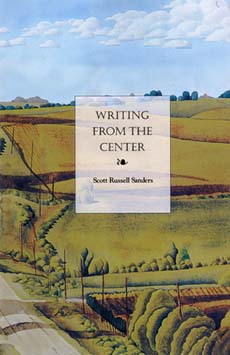
“But if Earth is to remain a hospitable home for humans, we must stop the unraveling—the greenhouse emissions, the habitat destruction, the wholesale pollution—and devote ourselves to the work of conservation and restoration.”
TFD: In your labor as a writer, you have taken up and homed in on hundreds—if not thousands—of subjects. Because of this wide-angle lens, even when your writing reveals the most personal notes in your life it seems to always be about expanding the consciousness of the reader, all the while welcoming them in. That said, are there subjects you’ve felt stumped by, or which continue to lure you in but leave you feeling unwelcome or stranded? Granted the act of writing might always present the challenge of overcoming such deterrents (and even succeeds while embracing such resistances), I might also then ask you if there are still things you wish to write about—and not because you’ve left your search for them unfinished, but because you’ve consciously set them aside, or said, “hey, I need to wait and come back to that?”
SRS: In my fiction as well as my essays, I keep returning to certain questions because they are inexhaustible. How did the universe come to exist and what sustains it? Why is there suffering and how can we alleviate it? Why are humans so violent? Why is racism so persistent? What is consciousness and how is it related to what we call matter? What is love? How can humans live in harmony with the rest of nature? Do we have a role to play in the evolution of the universe? How should we live? These are only a few of the questions that haunt me, many of them as old as humankind. Writing is my way of reflecting on this mysterious existence that each of us shares for the brief span of a lifetime. There are plenty of subjects I’ve been stumped by, and others—mainly in my personal and family life—that I have avoided. Although I work in the personal essay, I’m actually quite a private person. In the Introduction to The Paradise of Bombs I explained that “I write about my own life only when it seems to have a larger bearing on the lives of others.” I’m far more interested in our shared world than I am in myself. Now in my mid-seventies, I’m especially concerned for the younger generations, those who will inherit the consequences of our actions, for better or worse.
TFD: The focus on the shared world also seems to be a focus on listening. There is a stunning passage in your exquisite essay “A Private History of Awe” where you speak about listening to the performance of a Beethoven string quartet. In particular, you write that in “thinking back on that concert in Sitka, I find myself wanting not merely to savor the experience but to live in light of the possibility it revealed—this rhyming of human artifice and wildness, this breaching of the wall between inner and outer worlds, this return to the source.” The first time I heard this (I admit I heard it before I read the essay, through a link to a Lannan Foundation event in 2002), I couldn’t help but feel that you were also defining the role of the writer, specifically the essayist, that part of the role involves living in perhaps not the light but the darkness of the possibility of what an inquiry can reveal, and that the job is to make light in and around that inquiry and get out relatively unscathed. You’ve often written about the labor of writing, and the skill of it, but I’m wondering if you can you tell us a bit about the role you feel you play, both while you’re in the act of inquiring more deeply into something, and then too when you decide you’ve done enough inquiry?
SRS: The essay form allows me to ask questions for which I don’t have answers. It allows me to work through uncertainty, confusion, ambivalence, and ignorance toward greater understanding. I say “greater” as opposed to “complete,” because the questions that matter cannot be answered definitively. At moments over the course of my life, all of the questions dissolve and my conscious self disappears. There is no “I,” simply awareness. In the western tradition it’s called a mystical vision, and in Zen Buddhism it’s called satori—a sudden glimpse of one’s fundamental nature, a momentary awakening to ultimate reality. I tried to describe such an experience in “A Private History of Awe,” one evoked by a combination of nature and music. Wishing to explore further what I had touched on in the essay, I wrote a book with the same title, A Private History of Awe, which recounts a series of what Quakers call “openings” that have come to me over the course of my life. There is nothing exotic about these episodes. As I write in the book, “The enlightenment I wish to describe is ordinary, earthy, within reach of anyone who pays attention.” In all of my essays, I draw on my personal experience as a way of opening up universal, or at least widely shared human experience. So when I write about being a father, a son, a husband, a teacher, a backroads boy, an aspiring scientist, or a spiritual seeker, it’s not to call attention to myself, but to invite readers to reflect more deeply on their own lives, values, and actions.
TFD: Right, and reflection takes on many forms—I am struck by a moment in your essay “Landscape and Imagination” where you reference the importance of a kind of seeing, a seeing “of what is already there.” This is different than what you note the Romantics meant about the imagination—“a projection of the self onto the world.” It is also a seemingly natural extension of your idea in the same essay that a degree of “attentiveness and insight” is needed in order to “know the pleasures of an unspectacular landscape.” In many ways, this essay is about how we change or attempt to change landscape, but it is also very much about the degrees of awareness we occupy as we move through space and mind. Can you speak about awareness—to the ways in which you become more aware of landscape, ideas, and then too about what you do to remain more aware as you begin to write through or toward a topic?
SRS: Although I was born in Tennessee, I was reared in Ohio, where I imprinted on the midwestern landscape—the glacial plains, rolling hills, meandering rivers and creeks, hardwood forests, small towns and sprawling cities, humid summers and frigid winters, vast farm fields and backyard gardens, barns and country churches and blacktopped roads. After four years of college in New England and four years of graduate study in Old England, I moved to southern Indiana, closer to the heart of the Midwest, and I have lived here ever since. People who’ve glimpsed the Midwest only from cars on the Interstates or from airplanes thousands of feet in the air tend to think of it as flat and dull, a patchwork of corn and soybean fields. Even many people who live here fail to appreciate its textures or beauties. It’s an understated landscape, without mountains or canyons or rocky coasts, and it has given rise to an understated culture, including literature that celebrates those who depart for more glamorous destinations, such as New York or Los Angeles, Paris or London. To see the subtle virtues of this region, one needs to look closely and patiently. Unless viewed with affection, any landscape can be turned into raw material—minerals to be mined, topsoil to be poisoned and eroded, acres to be paved. Much of the Midwest has been ravaged by people who’ve never seen it with a loving gaze. There’s much I admire about the Midwest, but also much that I lament—a fundamentalist religion focused on heaven and indifferent to Earth; a legacy of racism and xenophobia; a callousness toward wildlife and wildlands; a suspicion of art and imagination. Wherever we live, in cities or towns and countryside, we need to pay close attention, discover what our place offers as well as what it lacks; then we can work to remedy its shortcomings even as we cherish its gifts.
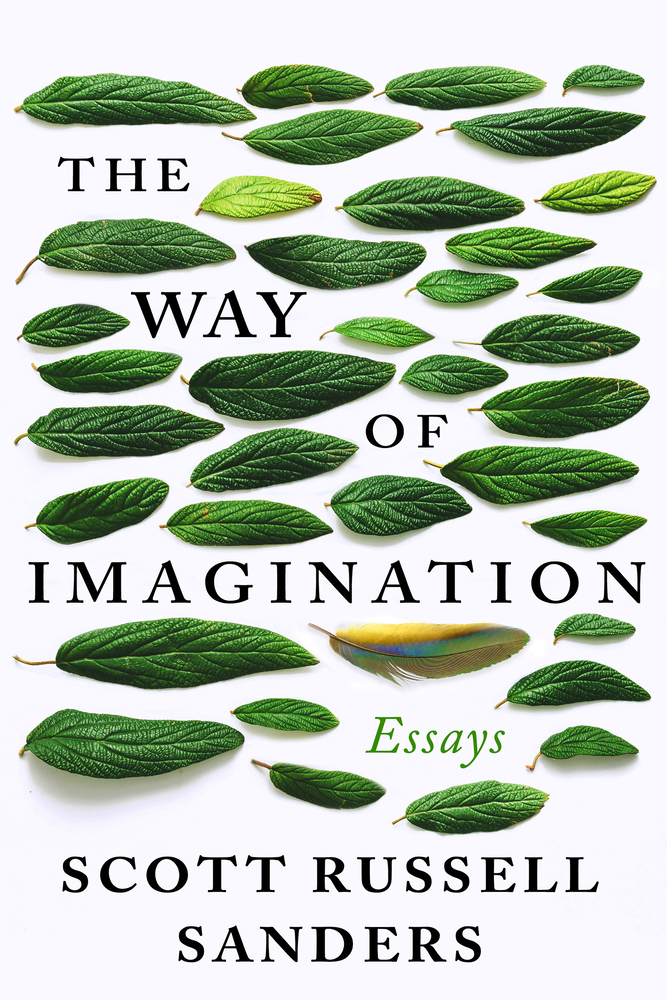
“The enlightenment I wish to describe is ordinary, earthy, within reach of anyone who pays attention.”
TFD: Attention, awareness, alertness, all these words that begin with the first letter of our alphabet and, though similar, mean slightly different things. I’m thinking about them all together because they seem to be grounding words for explaining what we do best while in the act of inquiring, or studying. I’m thinking of students here, and especially students who specialize in the sciences. You’ve often written about how science was your first focus. Your wife is a scientist, as is your daughter. Much of what you read in order to research the many topics you’ve written about probably comes more from, and this is of course my guess, the science than the humanities; and yet I’m trying to think through this without separating the two, without saying there is a gulf, because the separations—even the invisible ones—seem to be what hinder society from knowing, and thus caring more about the sciences, and definitely the environment. How can we better understand the relevant overlaps between the two, and what has been your experience over the years in seeing how we get more people to appreciate science? I’ll end with saying that your latest book, The Way of Imagination, covers so much of this, and readers should procure a copy and leap into the wider conversations and clarity of your writing, but I’m interested in how being around science/scientists has also inspired your dedication to Earth in your writing?
SRS: For me, the love of nature came first, and the love of science followed, as I searched for knowledge about rocks and bugs and trees and salamanders. Soon, my reading led me to biology and ecology, and I began to realize that humans were polluting rivers and cutting down forests and endangering animals. Books about evolution spurred me to hunt for fossils in streambeds. Then the space program led me to read about astronomy, physics, and geology, and I began building and launching model rockets and taking part in science fairs. Gradually, I came to recognize that science is a magnificent, collaborative, centuries-old, planetary effort by humans to figure out how the universe works, from stars to starfish, from galaxies to grass. It’s such a distinctive activity of our species that I like to think of science as one of the humanities! It reflects our curiosity and creativity, our ability to reason and imagine, our habit of collecting and passing on what we’ve learned. I’ve never recognized any gulf between the pursuit of science and other ways of seeking and expressing knowledge, such as history, philosophy, psychology, and literature. The findings of science are so fascinating to me, so inspiring, that I’m always puzzled by people who say they find it boring. Maybe they had a bad experience in school. Maybe they’ve never had a chance to hear a scientist talk enthusiastically about recent discoveries. Maybe they’ve never watched any of the superb documentaries broadcast on PBS, such as the Nova and Nature series. The methods that scientist use to pose questions and seek answers are no more difficult to understand than the methods used by painters, writers, musicians, or other creative people.
TFD: I think that’s a fine point to make, that the methods can be one and the same. That what we set out to do is no different, that there’s always a search for meaning, solution. That brings me to my last question: in thinking about everything from the technical to the subjective, how do you know when you’ve made it to the finish of an essay, how do you understand you’ve reached that summit of investigation, reflection, and thinking in the searchingly way?
SRS: I have several ways of judging when an essay is finished. I may sense that some formal pattern has been fully worked out. I may realize that I’ve begun repeating myself without advancing the theme. I may feel that the question, memory, story, or idea that impelled the writing has been developed as fully as I know how to develop it. I may come to a natural stopping point, such as a break in time, a departure, or a death. Or I may find myself becoming more interested in the next piece of writing, a sign that the current piece is losing its energy. There’s an old saying that no work of art is ever finished, it’s only abandoned. There’s always more that one could do. But at a certain point, one has to let it go, in order to keep exploring.
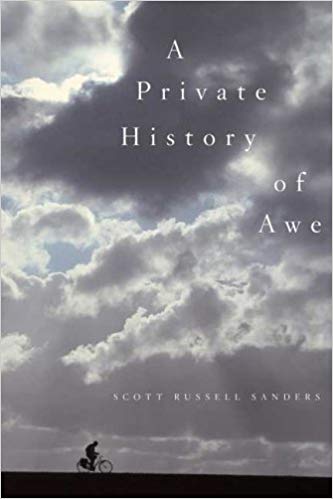
“Gradually, I came to recognize that science is a magnificent, collaborative, centuries-old, planetary effort by humans to figure out how the universe works, from stars to starfish, from galaxies to grass.”
Scott Russell Sanders is the author of more than twenty books of fiction and nonfiction, including Hunting for Hope, A Conservationist Manifesto, and A Private History of Awe. His recent books include Earth Works: Selected Essays and Divine Animal: A Novel. In August 2020, Counterpoint Press published his new collection of essays, The Way of Imagination, a reflection on healing and renewal in a time of social and environmental upheaval. He is a Distinguished Professor Emeritus of English at Indiana University, and a fellow of the American Academy of Arts and Sciences. He and his wife, Ruth, a biochemist, have reared two children in their hometown of Bloomington, in the hardwood hill country of southern Indiana.
